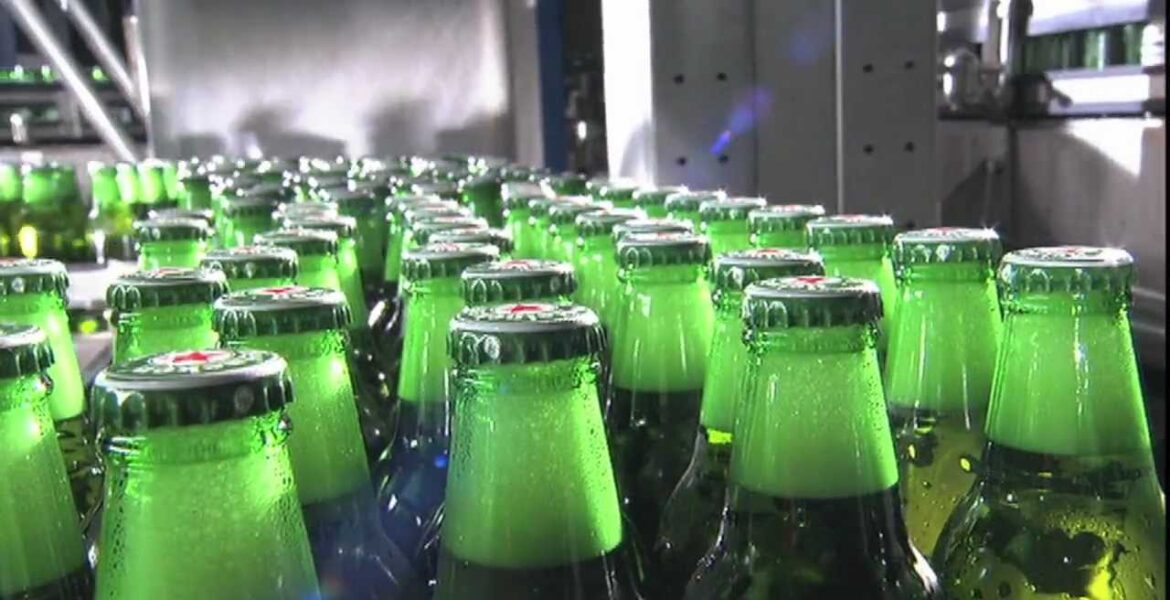Tour of Heineken and Distell plants a step in forging ahead with controversial tax stamp
system
GAZETTE REPORTER
Botswana Unified Revenue Services (BURS) is forging ahead with affixing tax stamps on alcohol and tobacco products despite protestations from Business Botswana (BB) and the Botswana Alcohol Industry Association (BAIA) that the decision was baseless and may result in skyrocketing prices, The Botswana Gazette has established.
According to sources, the latest development to that end entailed BURS taking a contingent of BAIA representatives on a tour of Distell and Heineken plants in South Africa last week.
In full swing
A few months ago BURS signed a 10-year contract with US-based company, Authentix, for the fiscal marking and digital tracking system for tobacco and alcohol products entering Botswana.
The pilot project, reportedly valued at over P750 million, is now in full swing despite unfulfilled requests for further consultations by BAIA and Business Botswana.
BAIA had proposed institution of a multiple-stakeholder taskforce involving government agencies and alcohol industry players with a view to establishing a comprehensive and coherent anti-smuggling programme.
“It is vital to first understand the size, shape and drivers of the illicit market in the country in order to design an effective and targeted campaign without penalising legitimate players in the market,” said the Chairman of BAIA, Tsaone Semausu, in an interview.
P0.15 per stamp
BURS has capped the tax stamp price at P0.15 on each alcohol product entering Botswana. According to data provided on the Authentix website, over 500 million alcohol and tobacco products enter Botswana borders annually.
This means Authentix will rake in over P750 million per year from its deal with BURS.
The tax authority has been at pains to explain the relatively high cost of the tax stamps. At P0.15 for one such Authentix stamp, 1 000 stamps will cost P200 or USD11.98.
Comparatively, countries like Equador charge USD2.00 for 1 000 stamps.
The industry has not only questioned the prudence of this particular track-and-trace system, as well as BURS’s readiness and capacity to implement and keep the system running continuously the.
The Gazette is informed that BURS has snubbed requests by Business Botswana and BAIA to be furnished with data and evidence that proves that illicit trade in alcohol is rampant in Botswana.
Said BAIA: “To-date BURS has not provided us with any information on the size and impact of illicit trade in alcohol. Why the reluctance to share this information?”
To no avail
The Director of Policy Advocacy at Business Botswana, Dichaba Molobe, has also expressed serious concerns about implementation of the system because they have not seen any data justifying it.
“We did ask them to share the study that they claim to have conducted but they refused,” he in an earlier interview. “We asked them to share the data and at least take the industry on board but to no avail.
“They claim there is a problem but they are not telling us what the problem is. The industry needs to understand the scale of the problem.
“We expect a public office like BURS to be transparent because implementation of such a system means that prices are going to increase and consumers will bear the cost.”
In addition, BB and BAIA previously wrote to the Minister of Finance and Economic Development, Peggy Serame, expressing their concerns about introduction of the tax stamp. Minister Serame has yet to respond to the letter.

